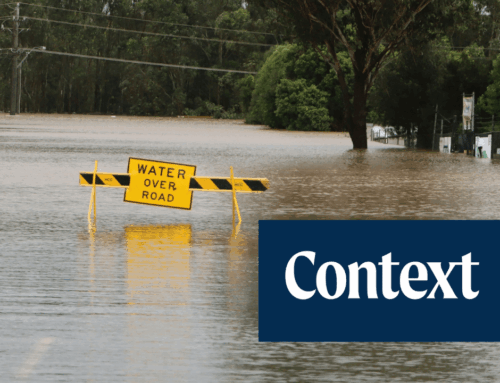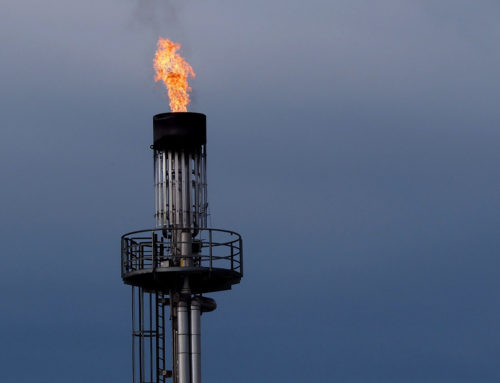Interior Department officials indicated Thursday the Biden administration would change some federal oil and gas policies in an effort to roll back the aggressive fossil fuel agenda of former President Donald Trump.
Interior leaders at an online forum said that rates the oil and gas industry pays for leasing, royalties and bonding could be due for increases, as the administration makes multiple moves to combat climate change.
During the forum, environmental groups also repeated their request to President Joe Biden and Interior Secretary Deb Haaland to make permanent a temporary ban on new leases for fossil fuel development on federal lands.
But oil and gas industry representatives cautioned a permanent ban would hurt national security and job opportunities and urged a speedy return to regular leasing.
Interior leaders during the forum were noncommittal on future leases. The department billed the forum more as an opportunity to hear from groups that have a stake in oil and gas than a policy rollout.
In her opening remarks, Haaland nodded to the importance of oil and gas development, but said the Trump administration had gone too far in promoting fossil fuels without considering environmental impacts. Her department would take a longer view, she said.
“Fossil fuels will continue to play a major role in America for years to come,” she said. “But too often, the extraction of resources has been rushed to meet the false urgency of political timetables, rather than with careful consideration of the impacts to the environment and future generations of Americans.”
Laura Daniel-Davis, the principal deputy assistant secretary for land and minerals management, said the department’s review of oil and gas leasing policy was part of the administration-wide effort to address climate change.
“President Biden’s commitment to tackle the climate change threat is the thread that runs through all of our decisions,” she said.
Daniel-Davis identified the rates paid by oil and gas companies to extract oil and gas from federal lands as due for changes.
The royalty rate for oil and gas, 12.5% of revenue, hasn’t been changed in more than a century, she said. Efforts to increase that rate to 18.75% have won support both from environmental groups that seek to discourage fossil fuel use and fiscal hawks such as the conservative group Taxpayers for Common Sense, which opposes what it views as shortchanging taxpayers by charging less than market rates for public assets.
Daniel-Davis also noted the bonding rate—the $10,000 for a single oil well or $25,000 for a set that oil and gas companies must pay before drilling—was established in the middle of the 20th century.
Conservationists say the rate is too low to actually cover the cost of cleaning up abandoned wells, which is what it is intended to do. A House bill sponsored by California Democrat Alan Lowenthal would multiply those rates by 10 to 15 times.
Daniel-Davis was less specific about issues related to off-shore development, saying the department would seek to reduce emissions, protect marine life and serve the interests of taxpayers.
Leasing moratorium
Nada Wolff Culver, the Bureau of Land Management’s deputy director of policy and programs, who is leading the agency until a Senate-confirmed administrator takes office, mentioned the low rates the agency charges for noncompetitive leases. If no one bids on lands the BLM has set for auction, the agency sells the leases for $1.50 per acre.
Rather than change the rate for new leases, environmentalists have been pushing for making the moratorium permanent. That would be in line for what’s needed to fight climate change, they say.
“Business as usual means climate disaster,” said Nathalie Eddy, a Colorado and New Mexico field advocate for the environmental group Earthworks.
Global fossil fuel use is among the greatest contributors to climate change, and advocates for addressing it say reducing extraction on federal lands is an obvious way to reduce overall emissions. A 2017 U.S. Geological Survey report estimated about one-quarter of U.S. carbon emissions could be traced to oil and gas extraction on public lands.
The pause has not materially hurt the oil and gas industry, conservation groups say. The industry has claims to about 26.6 million acres of federal land, but is producing on less than half, about 12.7 million, according to the BLM.
The 38 million acres of federal land and water the industry has claims to are larger than the state of Iowa.
But fossil fuel developers say those numbers are misleading. It can take years for a company to determine if land it is permitted to drill is actually productive, then more time to actually plan and execute drilling.
The industry is “not stockpiling leases,” said Frank Macchiarola, senior vice president for policy, economics and regulatory affairs at the industry group American Petroleum Institute, but was taking chances on tracts of land that may or may not actually produce enough oil or gas to be profitable.
Macchiarola said API supports the Biden administration’s conservation goals, and pointed to the group’s endorsement Wednesday of a form of a carbon pricing. The group said it supports “sensible legislation that prices carbon across all economic sectors while avoiding regulatory duplication.”
Macchiarola urged Interior to quickly finish its review of leasing policy, and return to regular leasing.
“Policies aimed at stopping or slowing oil and natural gas production is harmful to our national security,” he said. “We urge you to expedite this review.”
Sean McGarvey, president of the North American Building Trades Union, said organized labor also had major questions about the jobs impact of ending the federal leasing program.
Thursday’s event was the first public step in a process the administration outlined in Biden’s first week in office, when he signed an executive order pausing new oil and gas leasing on federal lands while the administration underwent “a comprehensive review” of the issue.
Interior will accept public comment on oil and gas leasing, through the email address energyreview@ios.doi.gov, until April 15.










